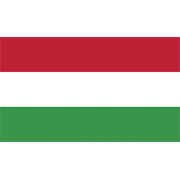Fiscal subject related
According to a statement from the country’s government, food retailers with a sales revenue of more than 1 billion HUF (around 2.6 million euros) will be obliged to display warnings on products that have shrunk in size while their prices have been maintained or increased.
Manufacturers will have to inform retailers of any changes in product size so that retailers will then be able to inform their customers as well.
The labels will have to signal any changes in weight or volume.
Based on the current published information, the retailers must provide the information for two months from the date they started to sell the product in the reduced size. They must warn customers in the store with, for example, shelf tags that a product has shrunk or similar labels that clearly indicate the changes in the product's size or weight.
These new rules are to come into effect in March and will remain in force for two months, as the current published notice states. It applies to larger supermarkets and other food and drink sellers with a minimum annual turnover of around 2.6 million euros.
Other news from Hungary
Hungary’s Next Phase of Fiscalization: What Retailers Need to Know About the Shift to E-Cash Registers
 Hungary
Author: Dunja Bošković Obradović
Hungary
Author: Dunja Bošković Obradović
Hungary is not announcing a fiscal revolution with headlines or sweeping political rhetoric. Instead, it is executing one methodically, through regulation, architecture, and time. For retailers and POS vendors operating in the country, the shift now underway will redefine what fiscal compliance means—not as a box to be checked, but as a system embedded directly into everyday transactions. At first... Read more



New webinar was uploaded: Recorded webinar: Approaching Hungary’s New E-Cash Register Era
 Hungary
Author: Tara Nedeljković and Ištvan Božoki
Hungary
Author: Tara Nedeljković and Ištvan Božoki
On December 19 2025, Fiscal Solutions organized a free webinar on the topic „Approaching Hungary’s New E-Cash Register Era“ The webinar was held by Tara Nedeljković, Team Lead of Legal Consultants at Fiscal Solutions, and Ištvan Božoki, Technical Consultant at Fiscal Solutions. Read more
Subscribe to get access to the latest news, documents, webinars and educations.
Already subscriber? Login


New event was created: Reminder - Join our free webinar: Approaching Hungary’s New E-Cash Register Era
 Hungary
Author: Tara Nedeljković and Ištvan Božoki
Hungary
Author: Tara Nedeljković and Ištvan Božoki
Step into this in-depth webinar designed for businesses and retailers operating in, or planning to enter the Hungarian market. You’ll discover what the new generation of e-cash registers is expected to introduce, along with the practical implications these changes may have on daily operations, technology planning, and customer interaction as well. 📅 18 December ⏰ 3 PM (CET) What we&rsquo... Read more



E--receipt requirements in Hungary – e-Cash registers in focus
 Hungary
Author: Tara Nedeljković
Hungary
Author: Tara Nedeljković
Recent legislative changes aim to replace mandatory paper receipts with regulated e-receipts, supporting NAV’s broader digitalization strategy while ensuring data security and limited tax-authority visibility. E-receipts must be generated by compliant devices, encrypted, optionally printed only on request, and may be linked to customer services such as loyalty programs only with explicit consent.... Read more



New event was created: Join our free webinar: Approaching Hungary’s New E-Cash Register Era
 Hungary
Author: Tara Nedeljković and Ištvan Božoki
Hungary
Author: Tara Nedeljković and Ištvan Božoki
Step into this in-depth webinar designed for businesses and retailers operating in, or planning to enter the Hungarian market. You’ll discover what the new generation of e-Cash registers is expected to introduce, along with the practical implications these changes may have on daily operations, technology planning, and customer interaction as well. 📅 18 December ⏰ 3 PM (CET) What we&rsquo... Read more



Choosing the Right Printer for the NAV e-Cash Register App in Hungary
 Hungary
Author: Tara Nedeljković
Hungary
Author: Tara Nedeljković
The NAV e-Cash Register app in Hungary supports a wide range of portable printers, but users should choose a device that meets the system’s technical expectations for clean and reliable receipt printing. Read more
Subscribe to get access to the latest news, documents, webinars and educations.
Already subscriber? Login


NAV Issues Detailed Guidance on Licensing Procedures for E-Cash Registers and Customer Apps
 Hungary
Author: Tara Nedeljković
Hungary
Author: Tara Nedeljković
NAV has published a detailed Notice explaining how distributors must apply for and obtain permits to market e-cash registers and customer applications under Decree 8/2025. Let’s explore this further. Read more
Subscribe to get access to the latest news, documents, webinars and educations.
Already subscriber? Login

